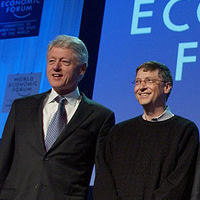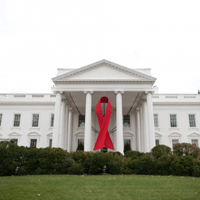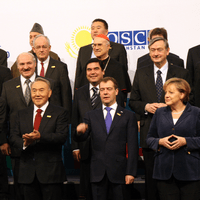After nine years of war in Afghanistan and seven more in Iraq, Americans are understandably weary of military interventions designed to remake or rebuild failed or fragile states. Nevertheless, many countries are still falling apart, or worse, falling into the hands of fundamentalists, terrorists, and other militants who disregard popular will and care little for human suffering. As a result, such nation-building interventions will remain necessary for the foreseeable future, as the U.S. involvement in Yemen, Somalia and Pakistan demonstrates. So instead of renouncing these missions, the U.S. must better define why and how it will carry them out, to […]
Aid and Development Archive
Free Newsletter

Over the past decade, the amount of money flowing into developing countries to address health issues has grown at an incredible rate. According to one authoritative estimate, the total annual value of money and goods donated to global health from all sources, public and private, has risen from less than $8 billion in 1995 to almost $27 billion in 2010 — with most of that increase occurring since 2002. Game-changing new organizations have been created during this period, from radically different kinds of private philanthropies, such as the Bill & Melinda Gates Foundation, which has made more than $13 billion […]

Through their foundations and personal-diplomacy efforts, Bill Gates and Bill Clinton are changing how the international community addresses global health concerns. The Bill & Melinda Gates Foundation is the world’s wealthiest philanthropy, and it has used its wealth to help set the governance agenda for global health. The William J. Clinton Foundation has used the former president’s stature to negotiate agreements between governments and pharmaceutical companies that had previously stymied international trade negotiations for years. The prominence of these two foundations raises a host of issues about the role of private actors in international governance, policy accountability within the international […]

At the closing ceremonies of the International AIDS Conference in Vienna this year, U.S. President Barack Obama pledged to redouble U.S. efforts to fight HIV and AIDS through his Global Health Initiative, notwithstanding hard times in the wake of the global recession. Despite this verbal commitment, many AIDS activists were not satisfied and would later protest, particularly before the midterm U.S. congressional elections, that the U.S. was not spending enough on AIDS overseas. A closer look at the Global Health Initiative budget reveals that these concerns may be justified. While AIDS funding has grown 4 percent from FY2010 to FY2011 […]

CANCÚN, Mexico — One thing is certain about the COP 16 climate talks in Cancún, Mexico: The summit was not the disaster of last year’s affair in Copenhagen. Though binding agreements were never on the table, even critical observers such as Global Witness, the World Wildlife Fund (WWF) and Greenpeace expressed measured optimism as the conference came to a close at 4 a.m. Saturday morning. “We hope countries can go back from [Cancún] with momentum to take national action, and with a sense of renewed purpose,” said Tara Rao of WWF. Rao nevertheless cautioned that the final agreement was far […]

Leaders of the Organization for Security and Cooperation in Europe (OSCE) are currently gathered in Astana, Kazakhstan, for the group’s first summit in more than a decade. The OSCE has many responsibilities due to its comprehensive agenda, but its most urgent task is to help mobilize greater support for Afghanistan. Although Afghanistan does not belong to the OSCE, several member states border the war-torn country, while many more have sent military forces to help combat the Taliban insurgents threatening the internationally recognized Afghan government. The challenges facing the OSCE in Afghanistan derive mainly from the porous borders between northern Afghanistan […]

On May 12, 2010, Minxin Pei wrote in an op-ed for the Diplomat that “what is most worrying about a possible North Korean collapse is that the key players in the region are not talking to each other, even informally, about such an eventuality.” Thanks to the Wikileaks release of a huge cache of U.S. diplomatic cables, we now know that this isn’t true. In February, a South Korean diplomat predicted the collapse of North Korea within a couple of years after the death of Kim Jong-Il, and argued that sufficient economic considerations could placate China for the loss of […]
